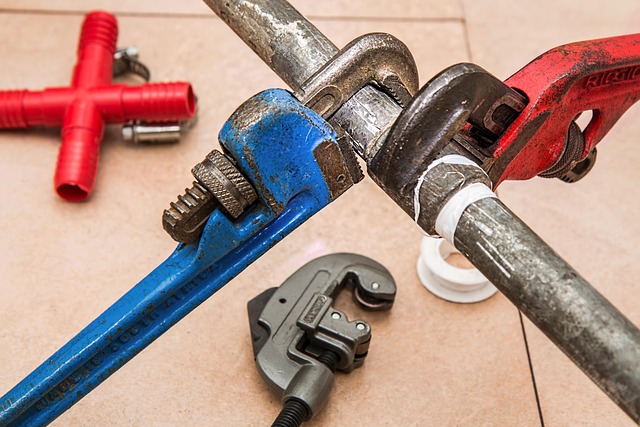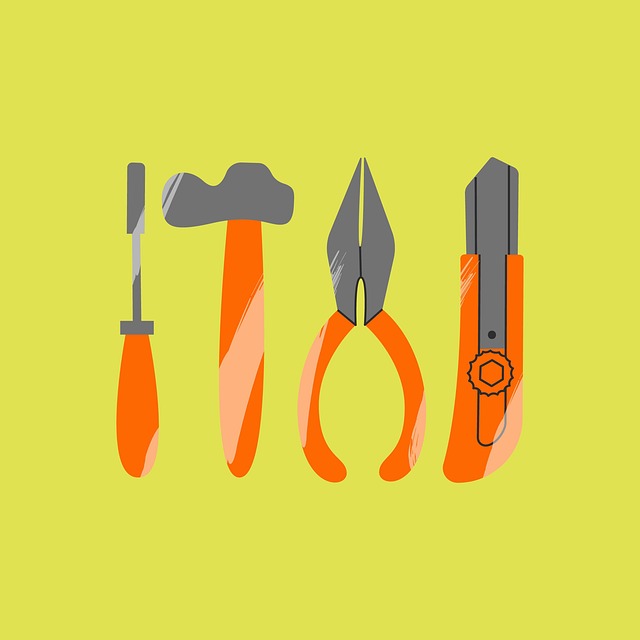Regular Select DIY Auto Repairs, including checking fluid levels, tire pressure, air filters, and battery health, prevent costly breakdowns, enhance vehicle performance, and improve fuel efficiency. Simple tasks like brake bleeding, AC recharge, engine tune-ups, steering wheel tightening, and battery maintenance contribute to your car's overall well-being and longevity.
Stay ahead of potential breakdowns with these simple, yet effective car maintenance tricks. For those looking to take on select DIY auto repairs, this guide offers practical steps you can do at home. Learn how to check and top up essential fluids, inspect tire pressure and wear, replace your air filter regularly, and monitor battery health. With these quick checks, you’ll keep your vehicle running smoothly and safely.
- Check and Top Up Fluids
- Inspect Tire Pressure and Wear
- Replace Air Filter Regularly
- Monitor Battery Health
Check and Top Up Fluids

Staying on top of your car’s fluids is one of the easiest and most effective ways to maintain its overall health. Regularly check levels of essential liquids such as engine oil, coolant, brake fluid, and transmission fluid. Top up as needed using recommended types and grades specified by your vehicle manufacturer. This simple select DIY auto repairs can prevent costly breakdowns and keep your car running smoothly.
For instance, if you notice a dip in your brake fluid levels, it might be time to consider a car brake bleeding diy. Similarly, if your air conditioning is not cooling effectively, purchasing a car AC recharge kit could help rejuvenate its performance. An engine tune-up at home, while more complex, can also be accomplished with the right tools and knowledge, further empowering you to take care of your vehicle’s maintenance needs.
Inspect Tire Pressure and Wear

Keeping an eye on your tire pressure and tread wear is a simple yet effective Select DIY Auto Repairs task. Regularly check your tire pressure using a reliable gauge, ensuring they’re inflated to the manufacturer’s recommended levels. Even a slight underinflation can lead to reduced fuel efficiency and increased wear, so this quick check can save you money in the long run.
While inspecting, look for signs of uneven wear or deep cuts on the tread. If noticed, it might be time to consider replacing your tires or addressing other issues like misaligned wheels. Remember, a simple monthly inspection can prevent costly repairs and keep your vehicle running smoothly. Small tasks like these contribute to maintaining a well-kept car, enhancing safety and performance.
Replace Air Filter Regularly

Regularly replacing your car’s air filter is one of those simple yet often overlooked DIY auto repairs that can significantly impact your vehicle’s performance and fuel efficiency. Located in your engine compartment, the air filter allows clean air to enter the engine while trapping dirt, dust, and other contaminants. Over time, this filter becomes clogged, restricting airflow and causing the engine to work harder. This not only reduces gas mileage but can also lead to more serious engine issues if left unaddressed. A clean air filter ensures optimal engine performance, so it’s a quick and easy task worth incorporating into your regular car maintenance routine.
When you’re ready to replace your air filter, gather the necessary tools and parts – typically just a new air filter and possibly some wrenches or pliers – and locate the filter housing under the hood. Remove the old filter by unscrewing it or unclipping it from its slot, taking care not to drop any debris into the engine bay. Once removed, inspect the housing for any signs of damage or dirt buildup. Clean the area if needed, then insert the new air filter, ensuring a secure fit before reattaching the housing. This simple step can make a noticeable difference in your car’s overall health and running condition, especially when combined with other basic DIY repairs like repairing a loose steering wheel or even a diy brake rotor replacement.
Monitor Battery Health

Monitoring your car’s battery health is a crucial part of regular maintenance that many DIY auto repairs enthusiasts find worthwhile. A healthy battery ensures your vehicle starts smoothly and efficiently, preventing unwanted breakdowns. It’s a simple yet often overlooked task that can save you from being stranded on the side of the road. Regular checks allow you to identify any potential issues early on, such as corrosion build-up on terminals or a loss of voltage.
You can perform this check using basic tools readily available in your garage. One helpful practice is to periodically test your battery with a voltmeter, ensuring it maintains a charge above 12 volts. Additionally, keeping an eye on the condition of your battery terminals and cleaning them if necessary, as well as following proper tire rotation instructions and regular maintenance routines (including DIY brake rotor replacement when needed), can significantly prolong your battery’s lifespan.
By incorporating these simple car maintenance tricks into your routine, you can keep your vehicle in top shape and save on costly repairs. Checking and topping up fluids, inspecting tire pressure and wear, replacing your air filter regularly, and monitoring battery health are all essential tasks that fall under the category of select DIY auto repairs. With a bit of time and effort, you can extend the life of your car and ensure smoother, more efficient driving.
